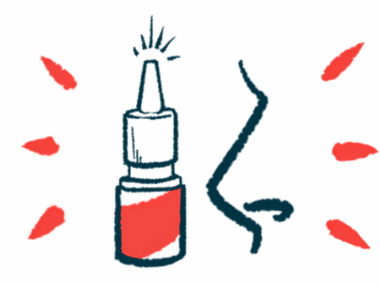High Levels of Levodopa Found in Mucuna Pruriens Supplements
Patients taking these supplements could end up with more levodopa than advised
Written by |

Very high levels of levodopa — a compound commonly prescribed to treat Parkinson’s disease — were detected in some over-the-counter supplements with extracts from Mucuna pruriens, a type of bean that naturally contains levodopa, a study has found.
In many of the tested supplements, the amount of levodopa was different from that listed on the label and was highly varied between the different products.
The report highlights the dangers of inconsistent label dosages on natural supplements. Patients diagnosed with Parkinson’s who consume these supplements could end up taking in more levodopa than needed, thus increasing the risk of side effects.
The study, “Levodopa Content of Mucuna pruriens Supplements in the NIH Dietary Supplement Label Database,” was published in the journal JAMA Neurology.
What is levodopa?
Levodopa is an amino acid naturally found in the body. In the brain, it serves as a precursor for several types of signaling molecules, including dopamine. Lack of dopamine is considered the cause of motor symptoms such as shaking, stiffness, and abnormally slow movements. As such, levodopa is commonly prescribed for Parkinson’s to increase the brain’s dopamine levels.
In a recent study that evaluated the use of dietary supplements by people with Parkinson’s, 7% of users revealed taking Mucuna pruriens supplements to treat the disease.
Now, researchers based at Cambridge Health Alliance, the University of Mississippi School of Pharmacy, and Harvard Medical School conducted a study to determine the amount of levodopa in Mucuna pruriens supplements found in the National Institutes of Health (NIH) database and that are sold without a prescription.
The team purchased 16 products in the NIH Dietary Supplement Label Database with “Mucuna pruriens” and “dietary supplement” on the label. Next, the quantity of levodopa was analyzed in these products, as well as in two authenticated samples of Mucuna pruriens seeds, for comparison.
The researchers found that one product had no detectable levels of levodopa. In the other supplements, the levels were as low as 2 mg and as high as 241 mg. Prescription levodopa is typically formulated in doses of 50, 100, 200, and 250 mg, the authors noted.
Mucuna pruriens seeds had from 2.5% to 3.9% levodopa. In supplements that listed a quantity of the seed extract on the label, the real amount of levodopa was 228% to 2,186% higher than the estimated quantity.
The researchers did not detect decarboxylase inhibitors carbidopa and benserazide, which block the peripheral metabolism of levodopa to dopamine — thus allowing higher levels of levodopa to reach the brain — in the supplements.
The authors noted that since prescription levodopa includes a peripheral decarboxylase inhibitor, it is not possible to directly compare the therapeutic effects of levodopa in Mucuna pruriens supplements with prescribed levodopa.
“Given these findings, clinicians may identify unsuspected levodopa consumption by asking patients about the use of supplements and advising that consumption of [Mucuna pruriens] supplements may unpredictably complicate the management of Parkinson and other diseases,” the researchers wrote.
A limitation of the study was that only one sample of each brand of supplement was analyzed, the team noted. Whether the amount of levodopa varies between batches over time is unknown.







